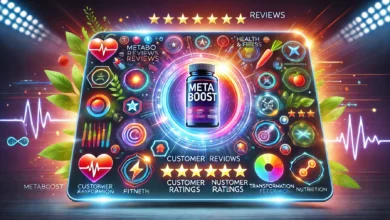TMS Ruined My Life: A Deep Dive Into the Dark Side of Transcranial Magnetic Stimulation

TMS Ruined My Life Transcranial Magnetic Stimulation (TMS) is often hailed as a revolutionary treatment for depression, anxiety, and other mental health disorders. Unlike medications, it’s non-invasive and promises fewer side effects. But what happens when TMS goes wrong? A growing number of people are sharing their traumatic experiences online, with posts titled “TMS ruined my life” flooding forums like Reddit.
While many patients report positive outcomes, others describe severe side effects, worsened mental health, and even long-term cognitive damage. This article explores the darker side of TMS, diving into real patient stories, scientific research, and potential risks that doctors may not always disclose.
What Is TMS and How Does It Work?
TMS (Transcranial Magnetic Stimulation) is a non-invasive procedure that uses magnetic fields to stimulate nerve cells in the brain. It’s primarily used for treatment-resistant depression but has also been approved for OCD, migraines, and smoking cessation. The idea is that by targeting specific brain regions, TMS can “reset” neural activity and improve mood.
The treatment involves placing an electromagnetic coil against the scalp, delivering pulses to the prefrontal cortex. Sessions typically last 20-40 minutes and are repeated over several weeks. Unlike electroconvulsive therapy (ECT), TMS doesn’t require anesthesia or induce seizures, making it seem like a safer alternative.
However, the keyword “TMS ruined my life“ suggests that for some, the reality is far from the marketed promise. Patients report unexpected side effects, emotional numbness, and even permanent changes in personality.
The Promised Benefits vs. The Harsh Reality

The Positive Side of TMS
Many patients and clinicians swear by TMS, citing significant improvements in depression and anxiety. Studies show that around 50-60% of people with treatment-resistant depression experience relief after a full course of TMS. For some, it’s a lifesaver when medications and therapy fail.
When TMS Goes Wrong
Despite success stories, a disturbing number of patients report devastating effects. Reddit threads like “TMS ruined my life Reddit” reveal accounts of:
- Severe anxiety and panic attacks – Some patients say their anxiety skyrocketed after sessions.
- Memory and cognitive issues – Complaints of brain fog, forgetfulness, and difficulty concentrating are common.
- Emotional blunting – A loss of emotional depth, making patients feel “like a zombie.”
- Worsened depression – In rare cases, TMS appears to deepen depressive symptoms instead of alleviating them.
One Reddit user wrote:
“After TMS, I didn’t just feel depressed—I felt hollow. My emotions were gone, and my memory was shot. It’s been two years, and I’m still not the same.”
Why Does TMS Ruin Some Lives? Possible Explanations
1. Incorrect Protocol or Poorly Trained Practitioners
Not all TMS clinics follow the same standards. Some may use incorrect coil placement, wrong frequencies, or excessive intensity, leading to adverse effects.
2. Pre-Existing Neurological Conditions
People with epilepsy, brain injuries, or other neurological issues may react unpredictably to magnetic stimulation.
3. The Brain’s Unpredictable Response
Every brain is wired differently. What works for one person might destabilize another’s neural chemistry.
4. Lack of Long-Term Safety Data
While TMS is FDA-approved, long-term effects remain understudied. TMS Ruined My Life Some patients report symptoms persisting years after treatment.
Real-Life Horror Stories: “TMS Ruined My Life” Experiences

Case Study 1: The Emotional Zombie Effect
A 32-year-old woman shared on Reddit that after TMS, she lost all emotional connection to her family. She described feeling nothing—no joy, no sadness—just emptiness.
Case Study 2: Cognitive Decline After TMS
A college student reported severe memory lapses post-TMS, struggling to recall basic information and failing exams despite previously excelling.
Case Study 3: Aggravated Anxiety
One man detailed how his mild anxiety turned into full-blown panic disorder after TMS, leaving him unable to work or socialize.
Is TMS Really Safe? What Science Says
Short-Term Side Effects (Common)
- Headaches
- Scalp discomfort
- Lightheadedness
Long-Term Risks (Rare but Serious)
- Persistent cognitive dysfunction
- Emotional numbness
- Increased suicidal ideation (in some cases)
A 2018 study in The Journal of Neuropsychiatry found that while most patients tolerate TMS well, a small subset experience severe, lasting side effects.
Should You Avoid TMS? Weighing the Risks
TMS isn’t inherently evil—it helps thousands. But if you’re considering it:
- Research your clinic – Ensure they’re reputable and experienced.
- Monitor your symptoms – Stop immediately if you notice worsening depression or cognitive issues.
- Explore alternatives – Ketamine therapy, ECT (in extreme cases), or lifestyle changes may be safer.
FAQs About TMS Side Effects
1. Can TMS cause permanent damage?
While rare, some patients report long-lasting cognitive and emotional changes.
2. Why do people say “TMS ruined my life”?
For a subset of patients, side effects are severe enough to drastically reduce quality of life.
3. Is TMS worse than antidepressants?
It depends. TMS has fewer systemic side effects (no weight gain, sexual dysfunction), but its neurological impact can be unpredictable.
4. How common are severe TMS side effects?
Estimates suggest 5-10% of patients experience significant adverse effects.
Conclusion: Proceed with Caution
TMS can be a miracle for some and a nightmare for others. If you’re struggling with depression, weigh the risks carefully. And if you’ve had a bad experience, know you’re not alone—thousands share your story under “TMS ruined my life.”


